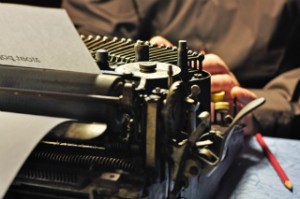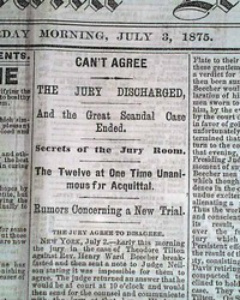Research is a big part of any author’s life, but even more so for those of us who write historical fiction. Today, it’s even easier to do this research. You can sit in your office in your pajamas and read newspapers from the 1800’s, or search through out-of-print books at the coffeeshop.
One good place to get started is THIS website – a guide to using primary research sources from the Reference and User Services Association. They also provide a list of some research sites.
Here are some more good resources to check out:
- Archive Grid – a catalog of more than 2 million primary and secondary source materials from institutions around the world, from Yale to the Netherlands’ Bibliotheek Universiteit Leiden -and it’s searchable by keyword. Not all of the material is openly accessible, but the massive amount of valuable information stored here makes it worth the trouble.
- David Rumsey Map Collection – more than 48,000 historical maps and images. Although most of the rare 18th and 19th century maps are from North America, you can find Europe, Asia, and Africa as well.
- Feeding America: The Historical American Cookbook Project – a really fun database of full-text, searchable transcriptions of cookbooks dating as far back as the 1700’s. It also includes a glossary of historic cooking terms and images of old cooking utensils.
- Food Timeline – lists of food prices dating back to the 1600’s – mostly American, but there are some global prices given.
- Google Books – more than 30 million digitally scanned books, most of which are no longer in print.
- Newspaper Archive – a collection of newspapers dating back to 1607. This requires a subscription, but it’s worth it if you’re doing serious research
- New York Public Library Digital Collections – more than 800,000 images, including historical maps and photographs, manuscripts, vintage posters and rare prints.
What are your favorite research sites?
Spent the day in the San Francisco library researching old newspapers. There’s something satisfying about reading an old newspaper — even if it’s not from the 1800’s. Some of the material is dated, of course. You may not recognize the famous-at-the-moment names in the articles, and the products advertised might be obsolete, but you can see that folks back then lived a lot like we do today. They worried about the same sorts of things. They enjoyed the same sorts of recreation and entertainment. They traveled, voted, lost and found or bought and sold items … newspapers bring the past to life for us in a way that history books can’t.
The really old papers, such as the ones I was reading, are like a little time-machine. Even without photographs, you can see drawings of what people were wearing or buying. You know what they paid for that ferry ride or train trip. You know which play they saw at the local theater. Newspapers are better than almost any other resource when you’re after historical facts and flavor.
If you can manage it, make a trip to the library and read through the old papers (or microfilm) yourself. It’s worth a day of reading. Your characters will become more alive as they move about the town, taking in a debate or play, paying for a taxicab with the actual fees, or even just looking at the local advertisements and dreaming about something they’d buy if they had the money.
What is your favorite historical resource?

